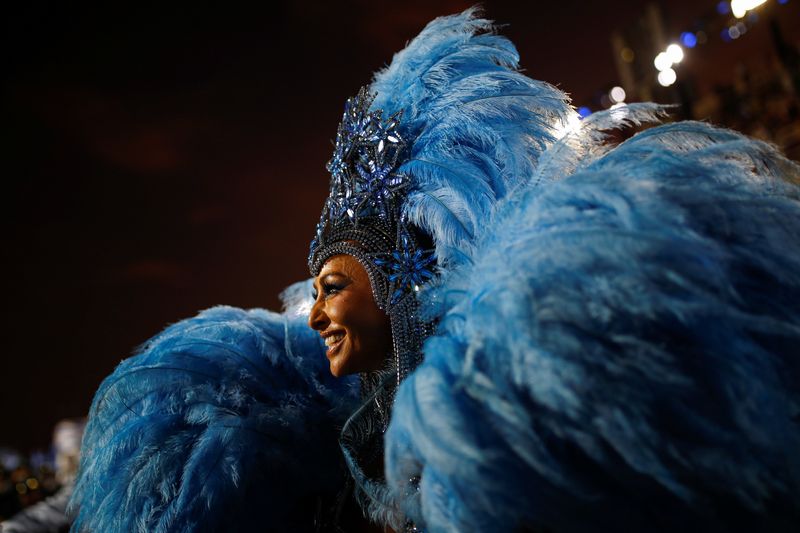By Sergio Queiroz
RIO DE JANEIRO (Reuters) - Rio de Janeiro's famously colorful Carnival (NYSE:CCL) celebration will return in full force this month and is expected to generate nearly $1 billion in business, an all-time high, following the pandemic-related restrictions of years past.
The streets of Brazil's second largest city will again play host to the free and wildly hedonistic parties, known as blocos, while the traditional samba schools will parade through the city's Marques de Sapucai Sambadrome.
With the worst of the COVID-19 pandemic seemingly behind, authorities expect the annual celebration to break records in the tourism and service sectors, offsetting some of the losses of the prior years.
"We believe the economy will generate five billion reais ($971.55 million) during Carnival alone, a record," the president of the Rio Tourism Company (Riotur), Ronnie Aguiar, told Reuters. "We're here very ready to welcome everyone who comes from all over the world."
Around 80,000 tourists from abroad are expected to travel to Rio for Carnival, up from 55,000 in 2020, before the pandemic struck Brazil, according to the International Association of Air Transport.
Countless hours of preparation go into planning for Brazil's largest annual celebration.
"The volume of work is always very big. It's a rush to be able to deliver everything on time, but we hope it's worth it and it's going to be very beautiful," said Alessandra Araujo Rodrigues, a member of the Unidos do Viradouro samba school.

Over 150 Carnival street blocos are expected to take over Rio's streets during the week of Feb. 18-21, though celebrations will extend for the whole month.
($1 = 5.1464 reais)